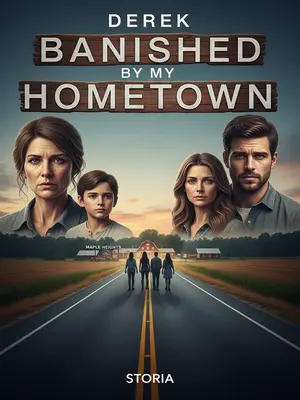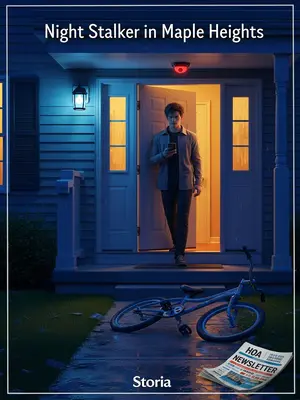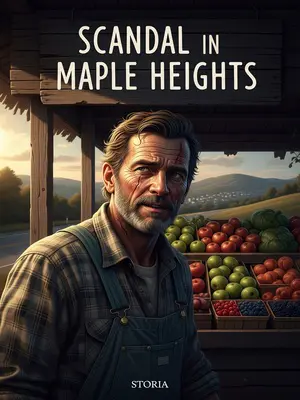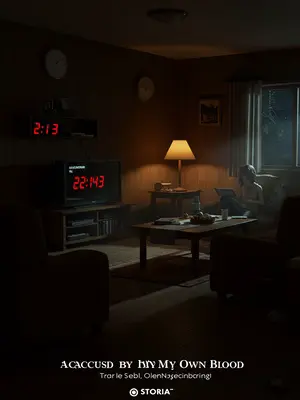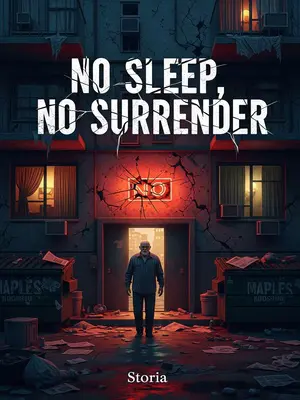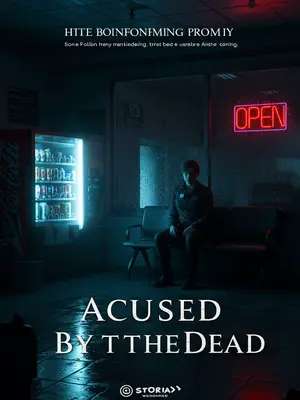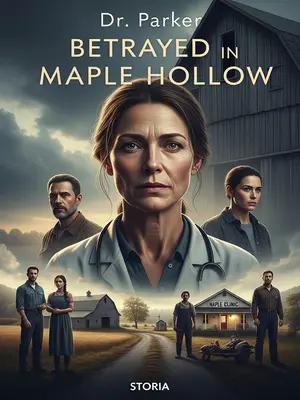Chapter 1: Betrayal in Maple Heights
My childhood friend was falsely accused. They said he’d assaulted someone. He wouldn’t confess, wouldn’t back down, and they gave him ten years in prison.
Even now, just thinking about that verdict ties my guts in knots. I can still see myself, slumped in the back row of that courtroom, barely hearing anything over the pounding in my ears. I didn’t really hear the judge—just saw his mouth moving, the words lost in a rush of panic and disbelief. Jay just stared dead ahead, his jaw set so tight you could see the muscle jumping. Wouldn’t even glance at his own sister. He looked like he’d already accepted whatever was coming, and somehow, that made it all feel darker, heavier—like hope itself had left the room.
His sister—Marissa—she gave everything she had. Everything. Even her life, in the end, trying to clear his name. Sometimes I still pause, remembering how hard she fought. It’s the kind of weight you don’t shake off.
Marissa never let go, not for a second. She wore herself down to nothing, knocking on every door in Maple Heights, begging for help, calling lawyers who never bothered to call back, scribbling letter after letter until her fingers cramped up. You could see it wearing her down—her hair thinning, her voice turning rough and hollow. Some nights, I’d see her sitting out on the porch steps, shivering against the cold wood, clutching an old photo of her and Jay as kids, staring down that empty street like she was waiting for some miracle that never came. People in town whispered she was obsessed, but honestly? I think it just tore her up inside, thinking of her brother locked away for something he didn’t do, and she couldn’t let that go. Not ever.
Three years later, Jay got out. The state handed him a check—wrongful conviction payout, just enough to look official—and he took that money and opened a barbecue joint out on the edge of town, tucked in a strip mall nobody ever thought would last.
It was the kind of place with cracked red vinyl booths, neon beer signs flickering in the windows, and the thick, sweet smell of hickory smoke curling out to the parking lot. Jay called it Maple Pit BBQ, painted the sign himself in shaky block letters. He’d work the counter, arms folded, nodding at folks as they came in. People showed up for the ribs, but kept coming back for Jay’s steady, no-BS vibe. You could tell he’d seen some things, but he kept it all locked down tight—never let it show, at least not to strangers. Sometimes, if you caught him alone, you’d see it in his eyes.
And then, one by one, the folks who set him up started to disappear.
Nobody said a word out loud, but everybody noticed. The deputy manager? Shipped off to some no-hope job in Oklahoma. The shift supervisor just vanished—word was he skipped town when the IRS started poking around. Even the old plant manager’s son, who used to act like he owned the place, wound up washing cars in Dayton. Folks started to wonder if it was just bad luck or if maybe Jay had a hand in it. Some nights, when the wind rattled the windows of that strip mall, you’d hear regulars mutter, “Guess karma finally came calling.”
Honestly, what happened to those two—Marissa and Jay—would break anybody’s heart. Sometimes I still think about it, and it just settles in my chest, heavy as stone.
It’s the kind of story that won’t let you go. The kind you spill after midnight, when the bar’s empty and everyone’s a little drunk and honest. Even the old-timers—guys who’d seen everything—would shake their heads and say, “Ain’t right, what happened to those kids.” Makes you wonder just how much a person can take before they finally snap.
Marissa—that was her name. She was kind of like a wildflower in the weeds—easy to miss at first, but quietly pretty in a way that sneaks up on you.
She had this way of gliding through a room, never asking for attention, but if the light hit her just right—maybe at sunset, when everything glowed gold—you’d catch your breath at how lovely she was. Her hair was always in a messy ponytail, smelled faintly of lilacs, and when she laughed, her whole face lit up. People didn’t always notice her at first. But once they did? They didn’t forget.
Her little brother—just Jay to everyone—was my classmate back in elementary school.
Jay was the kind of kid who’d split his sandwich with you if you forgot your lunch, or step in when some bully was picking on the little guys. He had a crooked grin, stubborn as a mule. We’d race our bikes down Maple Avenue, aiming for the old railroad crossing. He’d always let me win, but he’d act like it didn’t matter either way.
Both their parents worked for the local oil company in Maple Heights. Then, during a drilling operation, there was a terrible accident. They both died.
It happened on one of those bitter January mornings, when your breath comes out in clouds. Their folks left for work, coffee mugs in hand, and the next thing you knew, sirens were screaming down Main Street. By noon, everyone in town was talking about the explosion. By dinner, Jay and Marissa were orphans.
For a big company like that, a workplace accident was a huge stain. Heads could roll, maybe even land someone in jail.
The oil company had deep pockets, but even deeper secrets. If the feds started sniffing around, people at the top would be in real trouble. Folks whispered the accident could’ve been prevented if somebody hadn’t cut corners, but nobody wanted to say it too loud. Around here, loyalty to the company was as serious as Sunday church.
Not that it mattered to the old plant manager—he handled it all smooth as butter. Paid out compensation, sent flowers, and swept the whole mess under the rug before anyone could get too curious.
He was a big guy with a voice that filled the room and a handshake that could crush your fingers. He showed up at the siblings’ house with a casserole and a fat envelope, got the papers signed, and told everyone else to keep quiet. Within a week, it was all old news. The company was back in business. But for Jay and Marissa, nothing would ever be the same.
The old plant manager clapped a hand on their shoulders, grinned, and said, “From now on, you’re like family to me. Nobody in this town’s gonna mess with you, not while I’m around.”
He made a big show of it, standing there in their living room, muddy boots leaving tracks on the carpet, promising them the moon. For a while, he actually followed through—dropping off groceries, checking in, making sure the neighbors didn’t get nosy. Jay and Marissa clung to that promise like it was all they had left. In a place where everybody knew your business, having the manager on your side was better than cash in the bank.
Back then, the oil company ran everything. The hospital, the school, even the cops—if the manager said jump, folks asked how high.
It was like living in one of those old company towns. The plant sponsored the football team, paid for the Christmas parade, even ran its own clinic. Need something? Go through the company. The manager wasn’t just a boss—he was the unofficial mayor, judge, and godfather all rolled into one.
Jay and Marissa ate at the company cafeteria—never paid a dime for meal tickets. Didn’t matter if they loaded up their trays with roast chicken or mac and cheese, it was always free.
Sometimes Marissa would slip Jay an extra brownie under the table. The lunch ladies would just wink and look the other way. For a couple years, it almost felt like they belonged—like the town was looking out for them. Almost.
Every week, the office manager would swing by with a bag of canned peaches and cartons of milk. The workers kept an eye out for them, and the teachers made sure they were hanging in there.
It wasn’t much, but it mattered. Jay loved those canned peaches—he’d eat them straight from the can, syrup dripping down his chin, sitting out back with Marissa. Teachers would send home extra worksheets, neighbors would wave as the siblings walked to school. For a while, it seemed like maybe they’d be okay.
Even with no parents, Jay and Marissa didn’t have it so bad. Things rolled on until Marissa hit sixteen, the old plant manager retired, and a new boss took over.
This new guy? All business—pressed suit, tight tie, and a chip on his shoulder big as a cinder block. Didn’t care about old promises or orphaned kids. Suddenly, the world got colder. The cafeteria food tasted like cardboard. Marissa started hunting for work, and Jay stopped cracking jokes. The safety net was gone, just like that.
The office manager pulled Marissa aside. “This isn’t a charity, you know. We can’t keep this up forever. Time to start thinking about your own future, kid.”
That stung. Marissa tried to hide it, but you could see her face fall. She nodded, thanked the manager, and left with her chin up. But after that, she walked a little faster through the halls—like she couldn’t wait to be anywhere else, cheeks burning every time someone looked her way.

